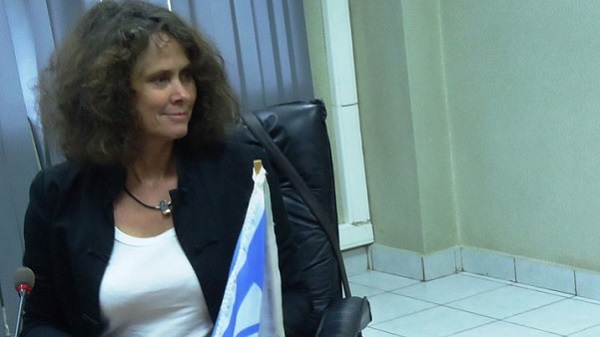
In the past two years alone, Enhancing Shared Prosperity through Equitable Services (ESPES) facilitated the training of over 8,600 health extension workers and enabled 11 million households to have access to agriculture extension services
WASHINGTON (World Bank)–The World Bank approved the International Development Association (IDA) additional financing of $700 million in support of Ethiopia’s continued efforts to improve equitable access to basic services and reinforce accountability systems at the decentralized level.
Access to basic services is one of the three main drivers of poverty reduction in Ethiopia. Additionally, improving access to services such as health and education promotes long-term growth. It is also in line with the Ethiopian Government’s Growth and Transformation Plan II, as well as World Bank Group’s (WBG) new Country Partnership Framework for Ethiopia.
“Our support through Enhancing Shared Prosperity through Equitable Services (ESPES) and related projects over the past decade has helped Ethiopia to drastically reduce child mortality, double access to antenatal care and increase net school enrollment rates,”
“In the past two years alone, ESPES facilitated the training of over 8,600 health extension workers and enabled 11 million households to have access to agriculture extension services.” said Victoria Monchuk, World Bank Project Task Team Leader.
Over the last 12 years, Ethiopia with support from WBG and other partners has registered impressive results in basic service delivery. This has helped the country to meet several of the Millennium Development Goals (MDGs) particularly in access to and gender parity in primary education, child mortality, HIV/AIDS, and malaria.
While these are promising results, the Government of Ethiopia (GoE) recognizes that much more remains to be done. Accordingly, GoE has identified equitable services as a priority area in its strategic planning for the Sustainable Development Goals and committed record financing to ensure its sustainability. At the same time, WBG recognizes that sustainability depends not only on financing but also on the quality and capacity of the institutional mechanisms that support service delivery. Therefore, to ensure that advances in areas such as citizen engagement, public finance management, environmental and social safeguards, fraud and corruption control, and monitoring and evaluation systems are fully institutionalized, capacity building has become a major area of focus for the WBG.
Since 2015, ESPES has been supporting Ethiopia’s decentralized system of governance through block grants that promote flow of information, resources and accountability between different levels of government, service providers and citizens. ESPES support to the system has proven to be highly effective in improving equitable access to basic services in nearly one thousand districts nationwide, with special emphasis on the needs of the most vulnerable Ethiopians and less advanced districts.
The additional funds will help finance the block grants to deliver basic social services such as health care, education, agriculture services, rural roads, and water and sanitation. In addition to scaling up existing activities, the funds will help to promote proper nutrition, citizen engagement, social and environmental safeguards as well as fiduciary management.
“The project will build on the success that has been achieved in service delivery and apply key lessons learned during previous phases to improve efficiency,”
“By putting renewed focus on results and equity, we hope to benefit the most vulnerable people and poorest woredas, supporting Ethiopia’s efforts to make its journey towards Middle-Income Country status more inclusive.” said Carolyn Turk, World Bank Country Director for Ethiopia, Sudan and South Sudan.
Enhancing Shared Prosperity through Equitable Services will continue using Ethiopia’s own institutions and processes, and link disbursement of funds directly to the achievement of specific results. This will help build capacity within the country, enhance effectiveness and efficiency and contribute to the achievement of tangible, sustainable results.
While the GoE is the major financer of basic service delivery, the African Development Bank, the European Union as well as the governments of Italy and Austria are also contributing. ESPES will continue to be implemented by the Ministry of Finance and Economic Cooperation.
Source: World Bank
——
Other stories:
- Ethiopia and World Bank Agree Five-year Deal
- Ethiopia Signs $1.3 Bln Loan and Grant Agreement with World Bank
- World Bank Praises Ethiopia’s Economic Growth despite Worst Drought in Decades
- EIB Confirms Support for 6 Billion Birr Private Enterprise Financing Program in Ethiopia
- New Country Partnership Framework to Support an Inclusive and Equitable Growth Path for Ethiopia
- World Bank, with $600 Million IDA Fund, to Help Ethiopia Build a National Safety Net System as a More Effective Response to Droughts
